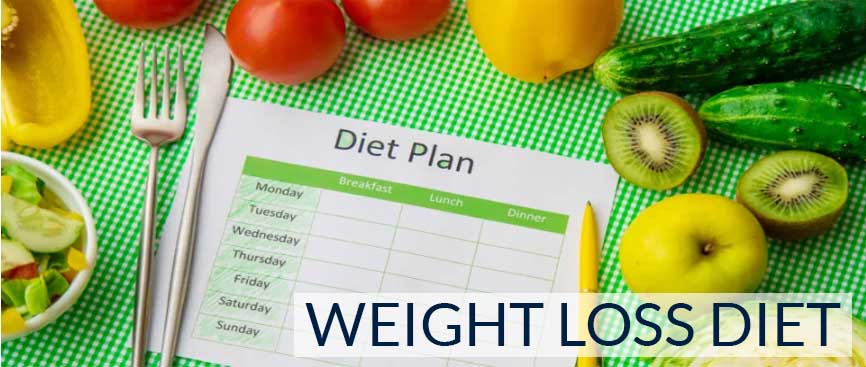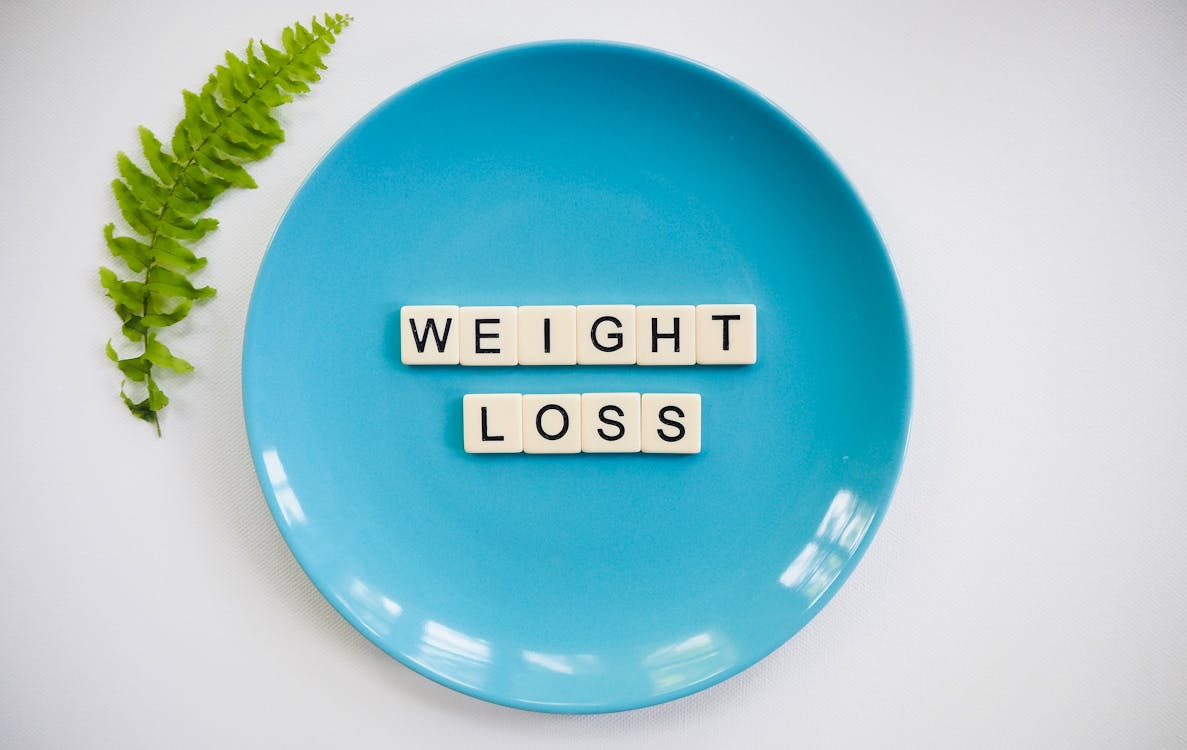
Weight loss is a common goal for many individuals seeking a healthier lifestyle. A well-designed weight loss diet is key to achieving sustainable and long-term results. This comprehensive guide, “Herbomass” will unveil the secrets of a successful weight loss diet, providing you with effective strategies to reach your ideal weight and improve your overall well-being.
Understanding the Basics of Weight Loss:
Losing weight is a goal that many people pursue for various reasons, ranging from improving overall health to enhancing self-confidence and body image. While the weight loss journey can be challenging, understanding the fundamental principles of weight loss is crucial to achieving sustainable and healthy results.
Caloric Deficit: The Fundamental Principle of Weight Loss
The concept of weight loss revolves around the principle of a caloric deficit, which means burning more calories than you consume. When you create a caloric deficit, your body turns to its energy reserves, primarily stored in the form of fat, to meet its energy demands. As a result, over time, the body starts shedding excess fat, leading to weight loss.
Creating a caloric deficit can be achieved through two primary methods: reducing calorie intake and increasing physical activity. A balanced approach of both is often the most effective and sustainable way to achieve weight loss.
BMR and TDEE: Calculating Daily Calorie Needs
To understand how many calories your body requires daily, it’s essential to calculate your Basal Metabolic Rate (BMR) and Total Daily Energy Expenditure (TDEE).
- Basal Metabolic Rate (BMR): BMR represents the number of calories your body needs to maintain basic physiological functions, such as breathing, circulating blood, and regulating body temperature, while at rest. Several factors influence your BMR, including age, gender, weight, and body composition. As muscle mass increases, so does BMR, as muscles require more energy to maintain than fat.
- Total Daily Energy Expenditure (TDEE): TDEE accounts for the total number of calories your body needs in a day, taking into consideration your BMR and the energy expended through physical activity. TDEE varies greatly from person to person based on their activity level, lifestyle, and exercise habits.
To calculate your TDEE, you can use online calculators or consult with a registered dietitian or fitness professional. Once you know your TDEE, you can adjust your calorie intake to create a caloric deficit and achieve weight loss.

Factors Influencing Metabolism and Weight Loss
Metabolism plays a vital role in weight loss, as it determines how efficiently your body burns calories. While some factors influencing metabolism are beyond our control, understanding them can help you optimize your weight loss journey.
- Age: Metabolism tends to slow down with age, primarily due to the loss of muscle mass. Regular exercise, particularly strength training, can help counteract age-related metabolic decline.
- Genetics: Some individuals have a naturally higher or lower metabolic rate due to genetic factors. While genetics play a role, lifestyle choices, such as diet and exercise, can still have a significant impact on weight loss.
- Hormones: Hormonal imbalances, such as thyroid disorders or insulin resistance, can affect metabolism and weight loss. Seeking medical advice and treatment for any underlying hormonal issues is crucial for successful weight management.
- Sleep and Stress: Poor sleep quality and chronic stress can disrupt hormonal balance and negatively impact metabolism. Prioritizing adequate sleep and adopting stress-reducing practices, such as meditation or yoga, can support weight loss efforts.
- Diet Composition: The types of foods you consume can influence your metabolism. Protein-rich foods, for example, have a higher thermic effect, meaning they require more energy to digest, which can slightly boost your metabolism.
Popular Weight Loss Diets:
When it comes to weight loss, there is no one-size-fits-all approach. Each person’s body is unique, and factors such as age, genetics, lifestyle, and health conditions play a significant role in determining the most effective weight loss strategy. Recognizing the need for personalized diet plans is crucial to achieving successful and sustainable weight loss.
Recognizing the Need for Personalized Diet Plans
While certain weight loss diets may be effective for some, they may not suit others. Individualization is the key to success, as what works for one person may not work for someone else. Customizing a diet plan to meet individual needs, preferences, and lifestyle factors can enhance adherence and long-term success.
Factors to consider when individualizing a weight loss diet plan include:
- Health Status: Individuals with specific health conditions, such as diabetes or heart disease, may require modifications to their diet plans to ensure safety and optimal health outcomes.
- Activity Level: The amount and type of physical activity a person engages in influence their calorie needs and nutrient requirements.
- Food Preferences: Adhering to a diet plan becomes more manageable when it includes foods that the individual enjoys.
- Cultural and Ethical Considerations: Cultural traditions and ethical beliefs can influence food choices and dietary restrictions.
Popular Weight Loss Diets
Low-Carb Diets (e.g., ketogenic, Atkins):
- Focus: Restricting carbohydrate intake while increasing fats and protein.
- Mechanism: By reducing carbs, the body enters a state of ketosis, where it burns fat for fuel instead of glucose.
- Potential Benefits: Appetite suppression, improved blood sugar control, and rapid initial weight loss.
- Considerations: May not be suitable for everyone, especially those with certain medical conditions. Long-term sustainability may be challenging for some.
Low-Fat Diets:
- Focus: Reducing fat intake and emphasizing complex carbohydrates and lean protein sources.
- Mechanism: Lowering fat intake reduces overall calorie consumption.
- Potential Benefits: Suitable for individuals seeking to reduce cholesterol levels and lower overall caloric intake.
- Considerations: Fat is essential for various bodily functions, and not all fats are unhealthy. Focus on healthy fats is essential.
Mediterranean Diet:
- Focus: Emphasizing fruits, vegetables, whole grains, legumes, nuts, seeds, and olive oil.
- Mechanism: Rich in antioxidants, fiber, and healthy fats, promoting overall well-being.
- Potential Benefits: Supports heart health, brain function, and weight management.
- Considerations: Portion control is essential, as excessive consumption of even healthy foods can hinder weight loss.
Intermittent Fasting:
- Focus: Cycling between periods of eating and fasting.
- Mechanism: May help reduce overall caloric intake and improve metabolic flexibility.
- Potential Benefits: Weight loss, improved insulin sensitivity, and cellular repair processes.
- Considerations: May not be suitable for individuals with certain medical conditions or those prone to disordered eating patterns.
Plant-Based Diets (e.g., vegetarian, vegan):
- Focus: Emphasizing plant-based foods while excluding or minimizing animal products.
- Mechanism: Typically lower in saturated fats and cholesterol, promoting a lower caloric intake.
- Potential Benefits: Weight loss, improved heart health, and reduced environmental impact.
- Considerations: Careful planning is essential to ensure adequate intake of essential nutrients, especially vitamin B12 and iron.
Choosing the right approach to weight loss involves recognizing the need for individualization and tailoring diet plans to suit personal preferences and goals. Exploring popular weight loss diets, such as low-carb, low-fat, Mediterranean, intermittent fasting, and plant-based diets, can provide valuable insights into different dietary approaches. However, it’s essential to approach any diet plan with caution, understanding that long-term success depends on sustainable habits and overall lifestyle changes. Before making significant changes to your diet, it is advisable to consult with a registered dietitian or healthcare professional to ensure the chosen approach is safe and suitable for your specific needs.

1- The 5 Secrets of a Successful Weight Loss Diet:
Achieving successful weight loss involves more than just counting calories. It requires adopting a holistic approach that includes mindful eating, balanced nutrition, portion control, and regular physical activity. Let’s delve into the key strategies for a successful weight loss diet:
1-1 Mindful Eating
Mindful eating involves being present and attentive to your eating habits. Slow down, savor each bite, and pay attention to your body’s hunger and fullness cues. This practice can help you develop a healthier relationship with food and prevent overeating.
1-2 Balanced Nutrition
A balanced weight loss diet includes all essential nutrients. Focus on incorporating lean proteins, such as chicken, fish, tofu, and legumes, to support muscle growth and repair. Include complex carbohydrates like whole grains, fruits, and vegetables to provide energy and essential nutrients. Don’t forget healthy fats, such as avocados, nuts, and olive oil, which contribute to satiety and overall well-being.
1-3 Portion Control
Controlling portion sizes is crucial for weight management. Use smaller plates and bowls to create the illusion of a fuller plate. Be mindful of your serving sizes and avoid going back for seconds. By practicing portion control, you can maintain a calorie deficit without feeling deprived.
1-4 Regular Physical Activity
Alongside a healthy diet, incorporating regular physical activity is vital for weight loss. Find activities you enjoy, such as walking, cycling, swimming, or dancing, and aim for at least 150 minutes of moderate-intensity exercise per week. Physical activity not only burns calories but also improves cardiovascular health and boosts mood.
1-5 Hydration
Don’t underestimate the importance of hydration in weight loss. Drinking an adequate amount of water throughout the day can help control appetite, support digestion, and maintain overall health. Aim to drink at least 8 glasses of water daily and limit sugary beverages.

Conclusion:
Embarking on a weight loss journey requires a well-planned and balanced diet that promotes sustainable habits. By adopting mindful eating practices, focusing on balanced nutrition, practicing portion control, and incorporating regular physical activity, you can achieve your weight loss goals and improve your overall health. Remember, weight loss is a gradual process, so be patient and celebrate each small victory along the way. Here’s to your successful weight loss journey!




